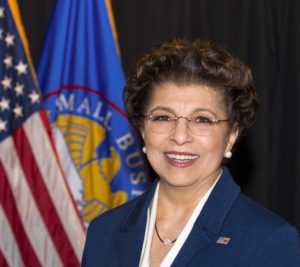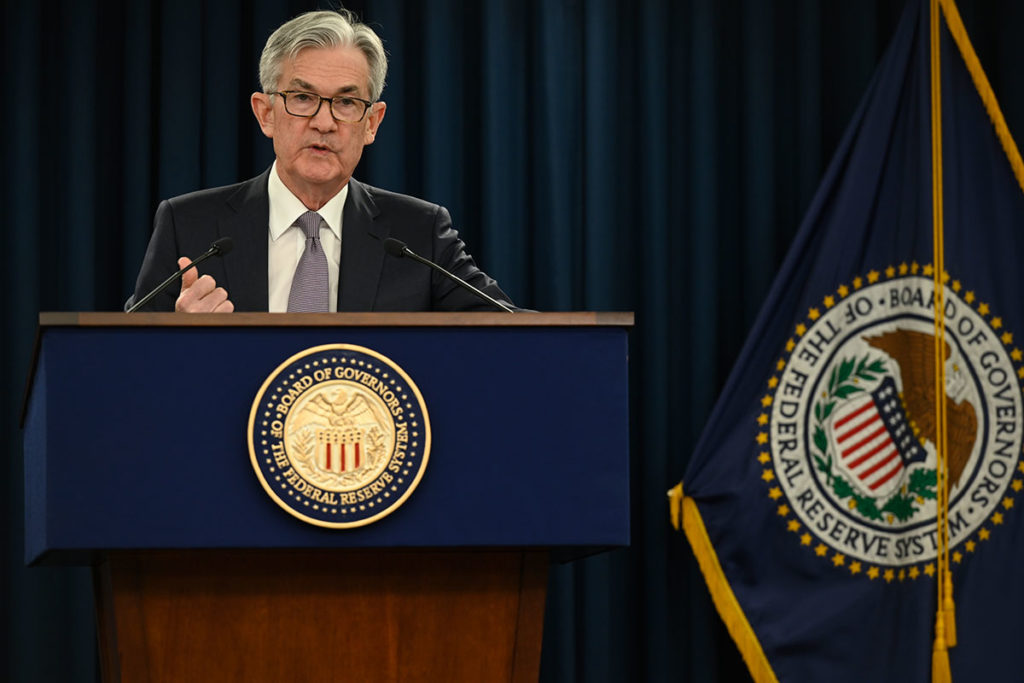
Body shops can tap SBA EIDL loans during coronavirus woes; new Fed aid has ‘Main Street’ program
By onAnnouncements | Business Practices | Legal | Market Trends | Repair Operations
Last week, we drew collision repairers’ attention to the importance of liquidity during a business disruption like the national COVID-19 coronavirus response. Do you have enough cash or credit to cover critical expenses like payroll if revenue slows or halts altogether? If not, you might want to look into that soon.
The Small Business Administration predicted March 17 “most” small businesses can get a line of credit from a bank.
The Federal Reserve has been encouraging such lending, including its March 15 cuts of the federal funds rate target to 0-0.25 percent and the primary credit rate to 0.25 percent.
“The Federal Reserve encourages depository institutions to turn to the discount window to help meet demands for credit from households and businesses at this time,” the Fed wrote in a news release announcing the latter.
However, the SBA acknowledged March 17 some small businesses couldn’t obtain bank financing.
SBA EIDL loans
Body shops who fall in the latter category might wish to consider the Small Business Administration Economic Injury Disaster Loans. At this point, it appears all of the states have the appropriate designation for their businesses to use the program.
“We’re very encouraged that banks and financial institutions are responding to the President’s efforts to mobilize an unprecedented public-private response to the Coronavirus (COVID-19) outbreak. As a result, most small businesses that need credit during these uncertain times will be able to obtain it. However, our goal is to ensure that credit is available to any and all small businesses that need credit but are unable to access it on reasonable terms through traditional lending channels,” Small Business Administration Administrator Jovita Carranza said in a statement. “To that end, the SBA is relaxing the criteria through which states or territories may formally request an economic injury declaration, effective immediately. Furthermore, once an economic injury declaration has been made in a state or territory, the new rules allow the affected small businesses within the state or territory to apply for a disaster assistance loan.”
On Monday, the agency also announced that the SBA would defer payment through Dec. 31 on all loans from prior disasters.
“The SBA is looking at every option and taking every action to cut red tape to make it easier for small businesses to stay in business. Automatically deferring existing SBA disaster loans through the end of the year will help borrowers during this unprecedented time,” Carranza said in a statement Monday. “Today’s announcement adds a list of growing actions the SBA is taking to support small businesses. These actions include making it easier for states and territories to request a declaration so small businesses statewide can now apply for economic injury disaster loans, and changing the terms of new economic injury loans to allow for one-year deferments. We are working around the clock to find ways to assist small businesses and today’s action is one step in this process.”
The SBA “EIDL” program can give a business up to $2 million.
“These loans may be used to pay fixed debts, payroll, accounts payable and other bills that can’t be paid because of the disaster’s impact,” the agency wrote March 17. “The interest rate is 3.75% for small businesses. The interest rate for non-profits is 2.75%.”
The SBA also lets businesses stretch out the loans over up to 30 years to make payments more affordable. “Terms are determined on a case-by-case basis, based upon each borrower’s ability to repay,” the agency said.
Apply for an EIDL loan at www.sba.gov/ela.
The Society of Collision Repair Specialists on Friday shared with members a report of an SBA lender relations specialist who had “encouraged that applicants should estimate their need at the highest end they anticipate for six months to a year.” SCRS also shared advice recommending businesses avoid delays by using the SBA online application process rather than emailing a copy of completed forms.
The organization on March 16 had joined other automotive trade groups in urging the nation’s governors to pursue economic disaster declarations to free up such loans.
The next day, the SBA announced it made this process even easier.
“Upon a request received from a state’s or territory’s Governor, SBA will issue under its own authority, as provided by the Coronavirus Preparedness and Response Supplemental Appropriations Act that was recently signed by the President, an Economic Injury Disaster Loan declaration,” the agency wrote.
Those declarations would trigger loan availability “statewide to small businesses and private, non-profit organizations to help alleviate economic injury caused by the Coronavirus (COVID-19).” (Emphasis SBA’s.)
Fed acts too
Shops might also also find increased access to capital following new efforts the Federal Reserve announced Monday. The Fed said in a news release it would be “Supporting the flow of credit to employers, consumers, and businesses by establishing new programs that, taken together, will provide up to $300 billion in new financing. The Department of the Treasury, using the Exchange Stabilization Fund (ESF), will provide $30 billion in equity to these facilities.”Both large and small businesses might be able to tap new credit the Federal Reserve said Monday it would support.
It planned to help large employers with “the Primary Market Corporate Credit Facility (PMCCF) for new bond and loan issuance and the Secondary Market Corporate Credit Facility (SMCCF) to provide liquidity for outstanding corporate bonds.”
In addition, it would create the “Term Asset-Backed Securities Loan Facility” allowing securitization of loans including SBA-guaranteed financing.
And perhaps most importantly for many of the industry’s repairers: “In addition to the steps above, the Federal Reserve expects to announce soon the establishment of a Main Street Business Lending Program to support lending to eligible small-and-medium sized businesses, complementing efforts by the SBA.”
Finally, small businesses might find it easier to secure credit if Congress and the White House reach agreement on Senate Bill 3548, the Coronavirus Aid, Relief, and Economic Security (“CARES”) Act. A draft available just before noon Monday gave the Department of Labor the right to guarantee up to $150 billion in loans for non-aviation businesses. The DOL would have 10 days to figure out how this program would work.
More information:
Small Business Administration, March 17, 2020
“Carranza Implements Automatic Deferment on Existing SBA Disaster Loans Through End of 2020”
SBA, March 23, 2020
SBA Economic Impact Disaster Loans webpage
“Federal Reserve announces extensive new measures to support the economy”
Federal Reserve, March 23, 2020
Images:
Small Business Administration Administrator Jovita Carranza is shown. (Provided by SBA)
Federal Reserve Chairman Jerome Powell is shown. (Provided by Federal Reserve)

